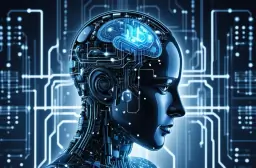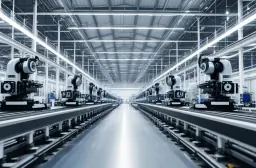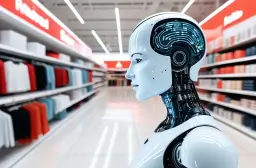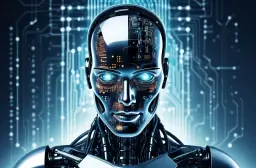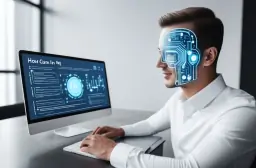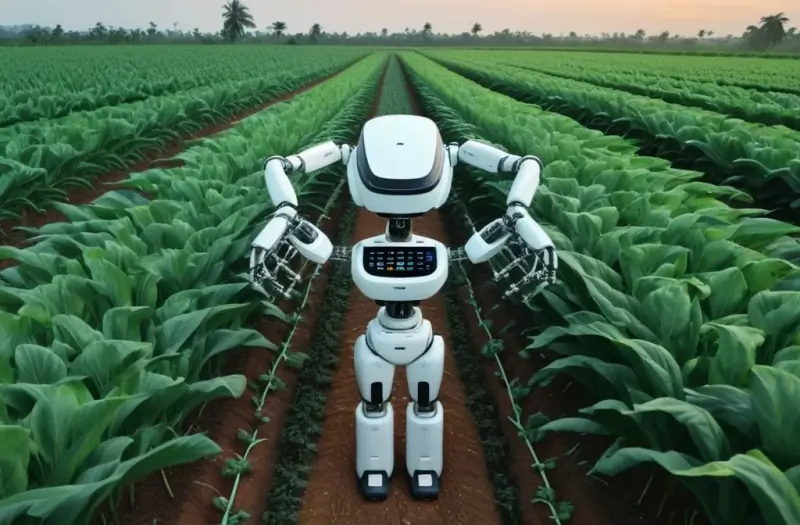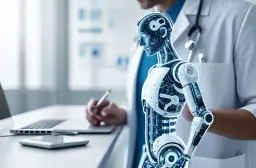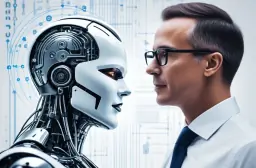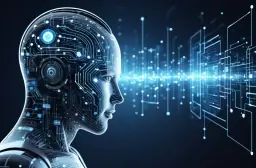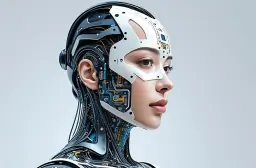How AI Transforms Daily Life: Smart Tech Innovation Unveiled
Table of Contents
Introduction: The AI Revolution in Our Daily Lives
Have you ever wondered how artificial intelligence (AI) is transforming the way we live, work, and interact with the world around us? We are witnessing an era where AI is no longer confined to the realm of science fiction, but is actively enhancing every aspect of our daily routines. Whether it’s the voice assistant guiding us through our day, the smart devices managing our homes, or predictive algorithms shaping our decisions, AI is woven into the fabric of our lives.
But how exactly does AI change our daily habits? Is it truly improving our quality of life, or is it just adding complexity to our already fast-paced world? These are the questions that we aim to explore in this article, as we dive deep into the world of AI and its profound impact on everyday living. From smarter homes to personalized experiences, AI is paving the way for a future where technology adapts to us rather than the other way around.
Let’s take a closer look at how AI is reshaping our routines, enhancing convenience, and creating more efficient ways to live in a digitally-driven world.
AI in Everyday Life: The Rise of Smart Technology

Artificial intelligence has become a cornerstone of modern life, evolving from a mere concept to an essential part of our daily existence. The integration of AI-powered solutions into everyday activities has made life more convenient and efficient than ever before. From smart home systems that learn your habits to personalized digital assistants that manage your tasks, AI is transforming how we interact with the world around us.
One of the most visible applications of AI is in our homes. Smart home devices powered by AI are not just futuristic gadgets; they are integral parts of our daily routines. For example, AI household assistants can adjust the lighting, temperature, and even play your favorite music based on your preferences. With predictive technology, these devices can learn from your habits and anticipate your needs before you even ask.
Key Applications of AI in Our Homes:
- Voice Assistants: Devices like Amazon Alexa, Google Assistant, and Apple Siri use AI to understand and respond to commands, making daily tasks easier and more efficient.
- AI-powered Thermostats: These devices learn from your heating and cooling preferences, adjusting automatically to provide a comfortable environment without the need for manual adjustments.
- Smart Appliances: Refrigerators, washing machines, and ovens are becoming increasingly intelligent, with AI capabilities that allow them to optimize energy use and provide updates or alerts when needed.
The Power of Machine Learning: Enhancing Routine Tasks
Machine learning, a subset of AI, has made significant strides in automating routine tasks. By using data-driven insights, machine learning models can improve processes and systems over time, making them more effective and less reliant on human intervention. This ability to learn from experience is what gives AI-powered systems the edge in productivity and efficiency.
In our day-to-day lives, machine learning in routine tasks can be seen in everything from spam filters in our email inboxes to recommendation systems on platforms like Netflix and Spotify. These systems not only understand our preferences but also adapt to them over time, providing a personalized experience.
For example, AI-powered email filters can automatically categorize and prioritize emails, saving you hours of work. Similarly, recommendation algorithms in online shopping apps predict what items you might like based on your browsing history, creating a more intuitive shopping experience.
How Machine Learning is Enhancing Productivity:
- Task Automation: AI tools like Zapier and IFTTT can automate repetitive tasks, such as transferring data between apps or setting up reminders.
- Personalized Recommendations: AI-driven systems analyze past behavior to suggest content, products, and services tailored to individual needs.
- Predictive Maintenance: In industries, AI algorithms can predict equipment failures before they occur, saving businesses time and money on repairs.
Smart Devices: The Cornerstone of a Tech-Enhanced Life

The proliferation of smart gadgets has brought about a new wave of convenience and personalization. Whether it’s a smartphone, a fitness tracker, or a smartwatch, these devices leverage AI to offer a seamless experience. With intelligent systems embedded into these devices, we now have access to real-time information, health data, and personalized notifications that help us stay on top of our daily responsibilities.
For instance, AI-driven fitness trackers can monitor your activity levels, track your sleep patterns, and even provide insights into your health. These devices are more than just fitness companions; they are part of a broader movement towards a smart, data-driven lifestyle.
Examples of AI Integration in Smart Devices:
- Wearables: AI-powered smartwatches and fitness trackers offer personalized health data, such as heart rate monitoring, step tracking, and workout recommendations.
- Smartphones: AI algorithms improve camera functionality, optimize battery life, and enhance app performance to provide a smoother user experience.
- Home Automation: Devices like Nest and Ring incorporate AI to manage security, temperature, and lighting efficiently.
AI for Productivity: Streamlining Work and Life
AI’s impact is not limited to just personal convenience; it’s also revolutionizing the workplace. With intelligent automation tools, AI-driven productivity apps, and virtual assistants, the way we work has changed dramatically. Digital assistants like Google Workspace, Microsoft 365, and Slack are now indispensable tools that use AI to enhance collaboration, streamline communication, and automate tedious tasks.
Moreover, AI-powered systems can provide valuable insights by analyzing large datasets, making it easier for businesses to make informed decisions. This shift towards AI-driven productivity is not only enhancing the efficiency of individuals but also reshaping the structure of organizations.
How AI Boosts Work Efficiency:
- Virtual Assistants: AI-powered tools like Google Assistant or Microsoft Cortana help professionals organize their schedules, set reminders, and draft emails.
- Collaborative Tools: AI-enhanced tools like Slack and Trello offer smart suggestions, automate project management tasks, and improve team communication.
- Data Analytics: AI can analyze business data to uncover trends, generate reports, and even predict future outcomes, assisting with decision-making.
FAQs: Answering Your Questions on AI in Daily Life
What are some common AI applications in everyday life?
AI is used in a variety of ways, such as smart home systems, voice assistants, predictive technology, and personalized recommendations for entertainment and shopping.
How does AI improve productivity at work?
AI enhances productivity by automating routine tasks, providing data-driven insights, and improving communication and collaboration through virtual assistants and intelligent systems.
What is the role of AI in home automation?
AI-powered devices, such as smart thermostats, voice assistants, and security systems, can optimize home management by learning your preferences and adapting to them.
Can AI really improve daily life?
Yes, AI enhances daily life by making tasks more efficient, reducing manual effort, and offering personalized experiences, which save time and increase convenience.
Conclusion: The Future of AI in Daily Life
As we’ve seen, AI is not just a passing trend; it’s reshaping how we interact with the world around us. From smart home systems that anticipate our needs to AI-driven productivity tools that make our work easier, artificial intelligence is transforming everyday living in ways we never thought possible. The seamless integration of AI-powered solutions into our daily routines is creating a tech-enhanced life, where convenience and efficiency reign supreme.
The future promises even more innovation, with robotics, predictive technology, and intelligent systems playing an even bigger role in shaping our daily experiences. Embracing these changes will not only improve our personal and professional lives but also contribute to a more connected and efficient society.





